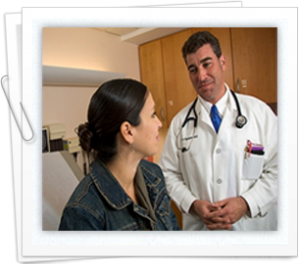Online CPR Certification Blog
Chemotherapy as a treatment for Esophageal Cancer
Date: October 8th, 2014
 When the term chemotherapy is mentioned, many unpleasant images come into the minds of most people such as feeling weak, loss of hair and visiting the toilet endlessly due to nausea and stomach upset just to highlight a few of them. However, despite the side effects, most of which are easily managed through therapies and medications, chemo is still a very effective method for treating esophageal cancer and alleviating its symptoms.
When the term chemotherapy is mentioned, many unpleasant images come into the minds of most people such as feeling weak, loss of hair and visiting the toilet endlessly due to nausea and stomach upset just to highlight a few of them. However, despite the side effects, most of which are easily managed through therapies and medications, chemo is still a very effective method for treating esophageal cancer and alleviating its symptoms.
Esophageal cancer and chemotherapy
Chemotherapy refers to a regiment of various anti- cancer medications, which are taken in pill form orally or intravenously when a catheter is placed in the vein. The typical chemotherapy is availed a couple of times in a week and given for a couple of weeks at any one time. Esophageal cancer can be treated through surgery, radiation therapy and chemotherapy. Ideally, the kind of treatment that you get will mainly depends on a couple of factors such as the stage of your disease, your overall health and what is the aim of the therapy.
In most cases, chemotherapy is usually administered together with radiation therapy and surgery for treating esophageal cancer. Chemo might be given just before surgery to help reduce the tumor size or after surgery for ridding the body of remaining cancer cells. There are times when chemo can be given alone for helping relieve pain and dealing with difficulty swallowing, which is very common among patients of esophageal cancer whose tumor isn’t possible to remove via surgery. The treatment is very effective when it comes to reducing the discomfort associated with the tumor which makes it easier to swallow.
Chemotherapy is best given to people whose health doesn’t allow them to undergo a surgery operation or those whose cancer has advanced. In such a case, a combination of chemotherapy and radiation therapy is given. In cases where the disease has advanced, the patient can get chemotherapy alone and then radiation and chemotherapy. Multi- modality has always been considered for the local regional disease. This refers to when the cancer has finally spread outside esophagus to the surrounding tissues whereby simultaneous therapy which also include chemotherapy can be used to contain the disease.
Chemotherapy- understanding its side effects
There are a couple of side effects that comes with chemotherapy even though all of them might not be experienced by the patient. The side effects basically include:
· Hair loss
· Vomiting and nausea
· Appetite loss
· Fatigue
· Mouth sores
· Increased risks for infection
The good thing is that these symptoms are usually temporary and will just disappear once the treatment comes to an end. As you go through this therapy, make sure you communicate with your doctor regarding the side effects so that you can be able to manage these symptoms. The doctor will always do his best to ensure that you are very comfortable during the treatment.